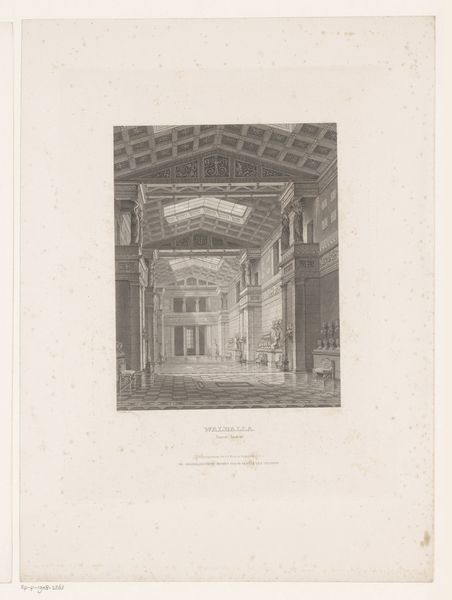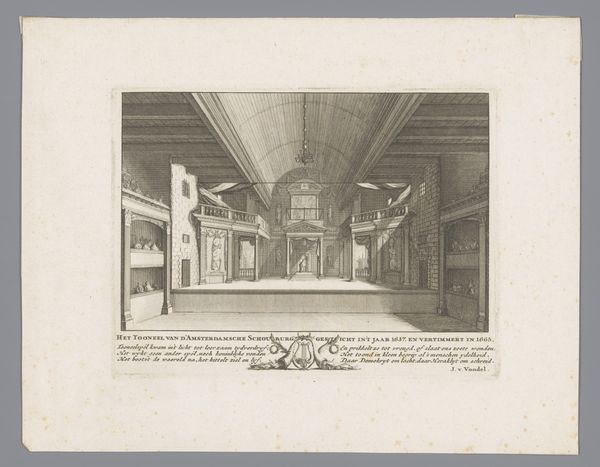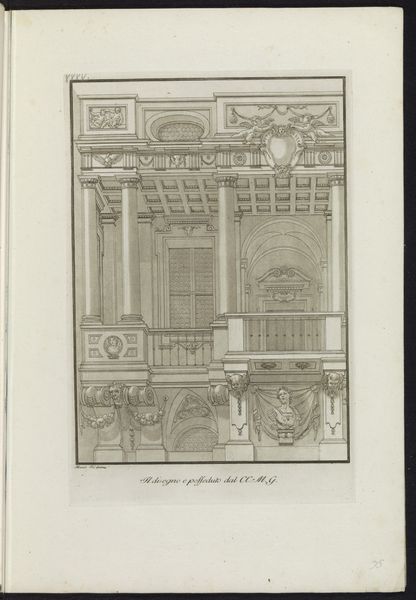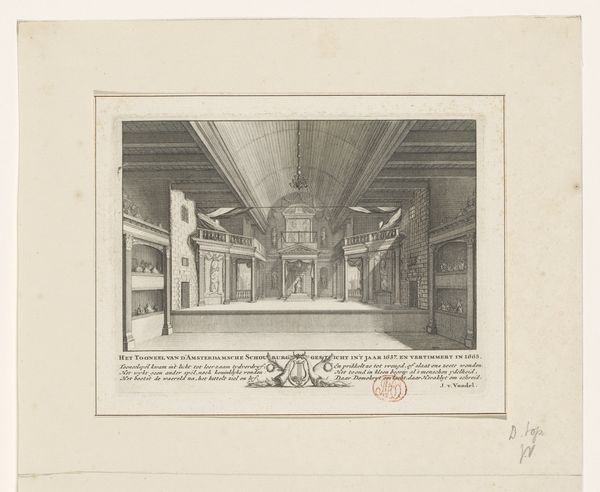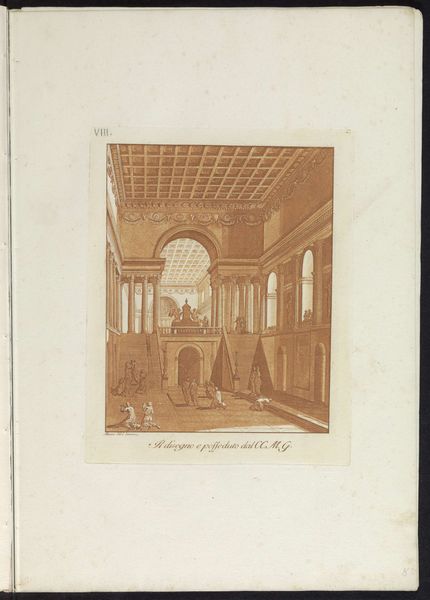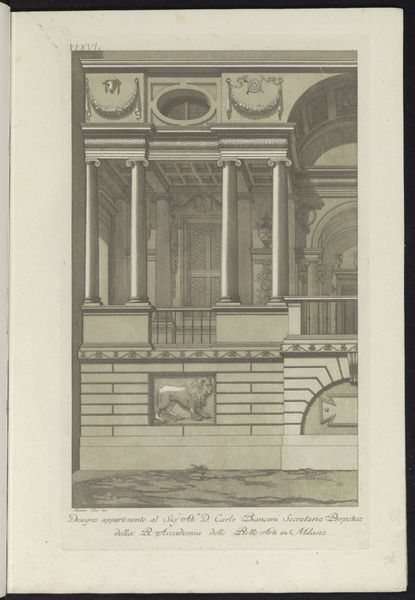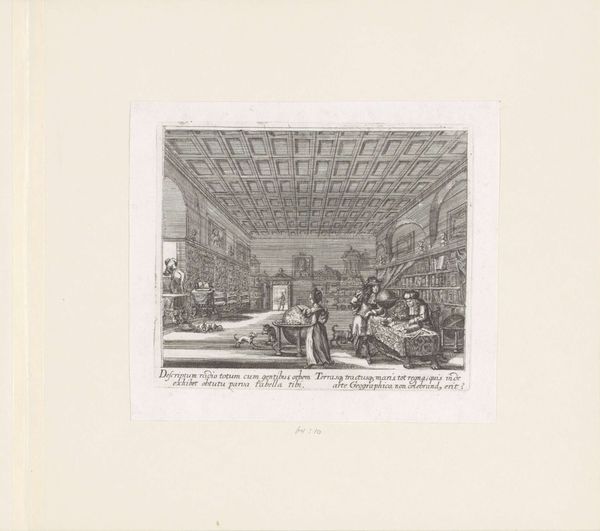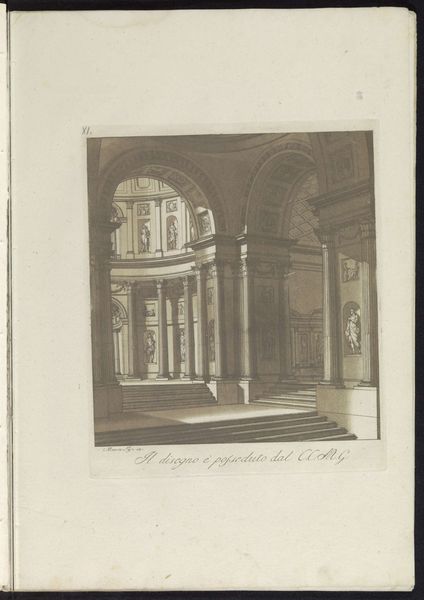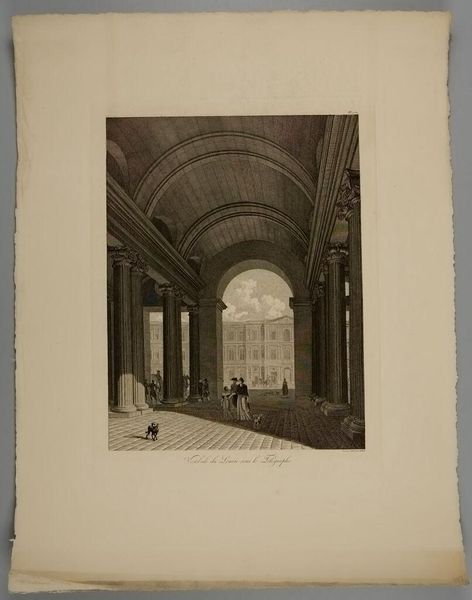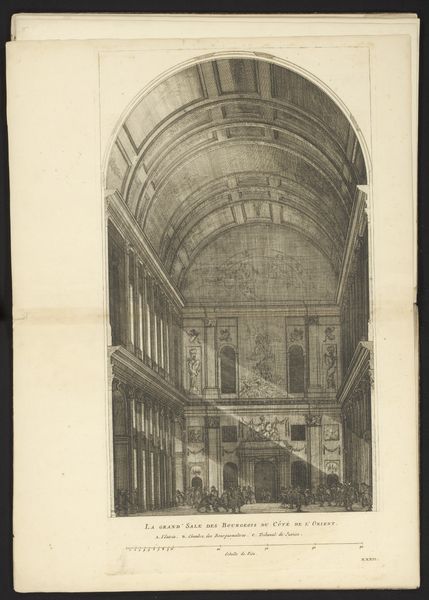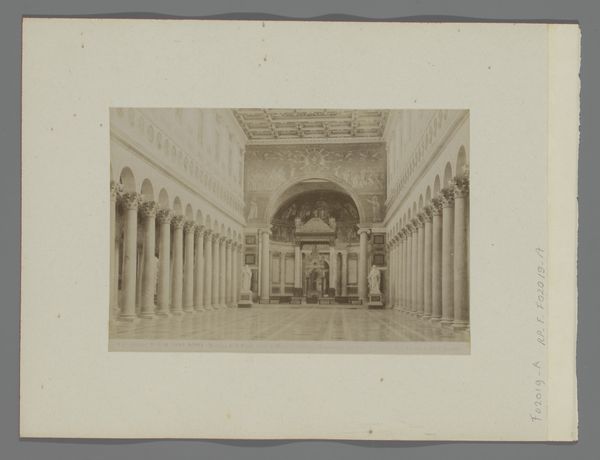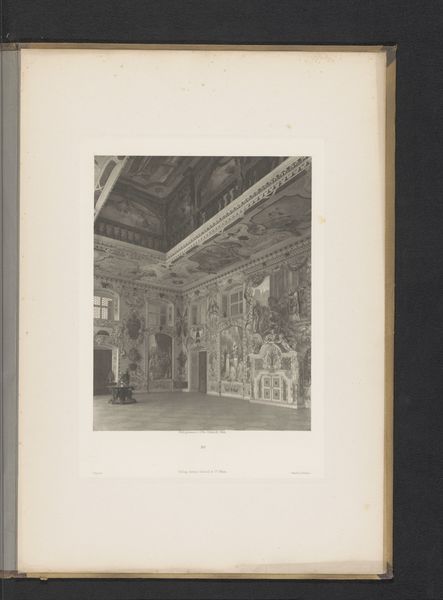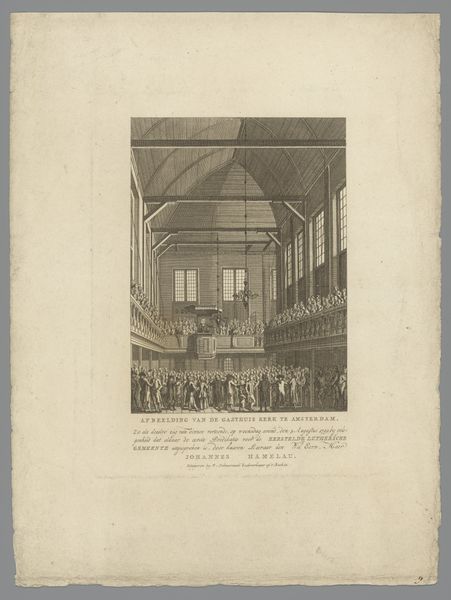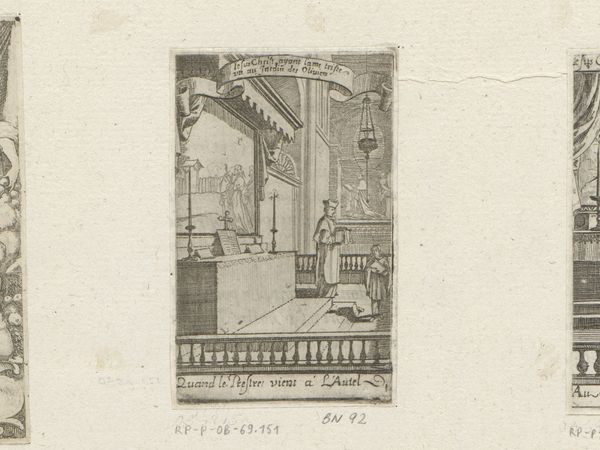
Interieur met trappartij naar een absis met zittende mannelijke sculptuur 1787
0:00
0:00
anonymous
Rijksmuseum
print, etching, sculpture
#
neoclacissism
# print
#
etching
#
classical-realism
#
sculpture
#
history-painting
Dimensions: height 244 mm, width 185 mm, height 414 mm, width 289 mm
Copyright: Rijks Museum: Open Domain
This is an anonymous print, held in the Rijksmuseum, depicting the interior of a grand hall, dominated by a seated male sculpture in an apse. The statues embedded along the hall's walls and the dominating sculpture are visual echoes of classical antiquity. These figures are archetypes, representations of virtue, power, and ideal human forms, intended to inspire awe and reverence. One might connect it to the Apollonian ideals of reason and order, yet there is something unsettling in the scene's overall composition. Consider the visual weight of the seated sculpture, elevated on the apse. This motif of the enthroned figure has its roots in ancient Near Eastern and Mediterranean cultures, symbolizing authority. Yet here, its imposing presence seems to oversee a scene of obscure ritual being conducted by figures on the floor. What are they doing? The torch held aloft, a symbol of enlightenment, casts light that fails to illuminate the true nature of what is transpiring, leaving the viewer in a state of unease. It is a powerful visual metaphor of how symbols can lose their meaning, and how the collective subconscious often interprets symbols based on emotional memory rather than literal significance.
Comments
No comments
Be the first to comment and join the conversation on the ultimate creative platform.
